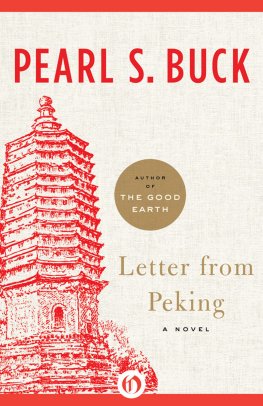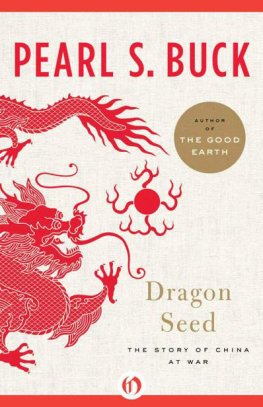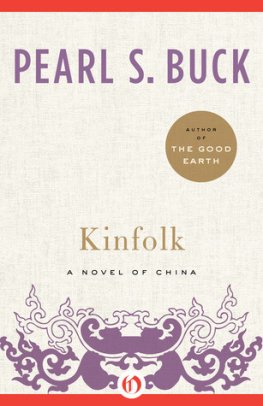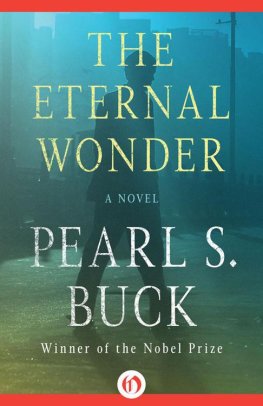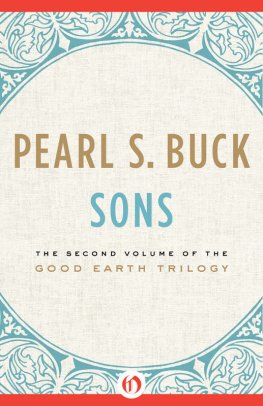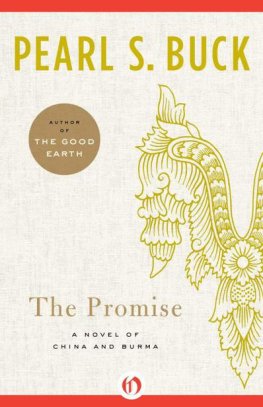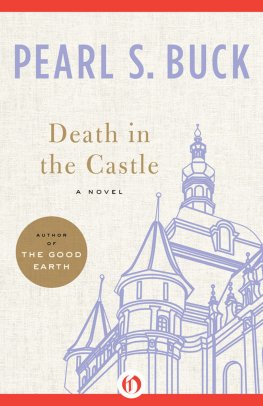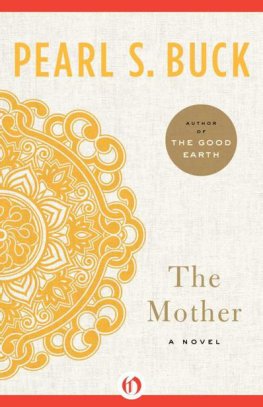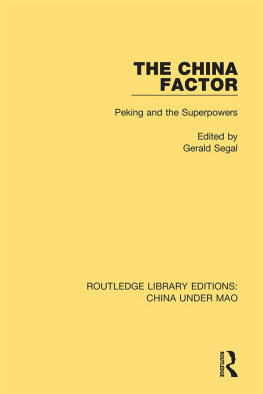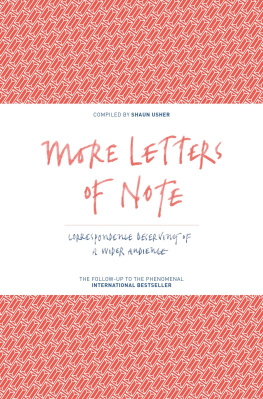Pearl S. Buck
Letters From Peking
In the arts everything that is beautiful pleases me. I know no exclusivity. I do not believe in any one school. I like what is gay as well as what is serious, the terrible, the great, the small. In short, everything which is as it ought to be; truthful and beautiful.
Verdi to the painter Morelli.
THE YEAR IS 1950, the month is September, and the day the twenty-fifth. The place? It is this valley in the mountains of Vermont, where I was born and where I lived my childhood through. I have crossed the seas, I made my loves country my own. Then came war, and I was an alien in spite of love, and I returned again to the valley.
Half an hour ago I walked down our country road, under the arch of maples, red and gold, to meet the postman. He comes only three times a week to this remote spot in the mountains of Vermont, and three mornings a week I wake early and restless. There is always the chance that a letter will come from Peking, a letter from Gerald. For months no letter has come. But this morning there was a letter. The postman singled it out and gave it to me.
Heres what youre waitin for, he said.
I would not open it until he was gone. Then, alone in the lane, under the arching maple trees blazing with autumn fire, I opened the envelope. I knew, as I read, that I had been expecting this letter. No, rather, I knew that it could not surprise me. Nothing that Gerald does can surprise me, or shock me, or even hurt me. I have loved him. I do love him and shall always love him.
I read the letter, over and over again. In the silent autumn air, no wind stirring, the bright leaves floated down. I could hear Geralds voice speaking the words he had written.
MY DEAR WIFE:
First, before I say what must be said, let me tell you that I love only you. Whatever I do now, remember that it is you I love. If you never receive a letter from me again, know that in my heart I write you every day.
These were the opening words of the letter, and as I read them I knew what must follow. I read to the end, and then, Geralds voice echoing in my ears, I walked home. The house is empty after Rennie leaves for school. I am glad for this loneliness. I am here now in my room, at my desk, writing. I have locked the letter into my box. I will forget it. At least for a while let me forget, until the numbness has gone from my heart. This is my comfort, to write down all I feel, since there is no one to whom I can speak.
Yet this morning dawned like any other day. I rise early nowadays. Our neighbor farmers rise at four and sleep soon after twilight, as the Chinese farmers do. But Gerald likes the quiet while others sleep, and so, through the years of our marriage, I have learned to go late to bed. The night hours in our small Chinese house were sweet. The street sounds died after dark, and if there was music, it came when the days business was finished. Over the low compound walls the voice of a two-stringed violin floated into our courts. It was made by our neighbor, Mr. Hua, who by day was a merchant in a nearby silk shop. In summer Gerald and I sat under the pine tree by the goldfish pool, and we let Rennie, our son, stay with us past all sensible bedtime for a child. He is our only son. Our daughter died suddenly in babyhood. In the morning she was laughing and alive, and by night she was gone. I do not know why she died. The sorrow was part of the price I paid for loving Gerald and going with him to China.
For a long time, it seemed very long, we were childless. I grieved but I was saved by Geralds grief. I thought he would never cease mourning for our lost child. For months he could not sleep easily and he ate so little that his tall frame, always slender, was skeleton. I suppressed my own tears to listen to his grieving.
I should have stayed in your country, he said again and again. If we had lived in America, our daughter would not have died. I have robbed you of too much.
I leaned my head upon his breast. Wherever you go, there I go. There is no cost in comparison.
He looked at me strangely. This is the difference between American women and Chinese women. You are more wife than mother.
When I am with you I am all wife, I said. And besides, you would never have been happy in America.
He could not be happy here. I knew it then and I know it now. Though in Peking I was often homesick in fleeting moments for the clean cool mountains of Vermont, I was happy there. It is a jewel of a city, richly set, gilded with time and history, the people courteous and gay, and I saw my life stretching ahead of me in peace and beauty, and there, I supposed, I would be buried by Geralds side, both of us old and full of years. We come of long-lived stock, he and I.
Yet here I am, in this Vermont village of Raleigh, in a lonely farmhouse, with Rennie, our son, seventeen years old. And now, this letter having come, I do not think I shall ever see Gerald again.
As I said, the day began as any other does. I rose at six, I helped Matt milk our four cows and I set the can on the barn stoop for the milk truck to pick up, saving out the big pewter pitcher full for Rennie. Then I went into the kitchen and made his breakfast. Rennie helps to milk at night. He is like Gerald. To rise early is torture but he will work late and with ease. I, being alone, have returned to the hours of my childhood, for I was born here upon this land which belonged to my grandfather and then to my father, and now is mine. By hope and faith my father was an inventor in a minor way, scamping his farm work to build contraptions, as he called them. Two or three were fairly successful, an egg-washing machine, for example. But we fed from the farm and for cash depended upon a legacy left my father by his father, who was not a farmer but a famous lawyer. When Gerald and I were married, my father was already dead, and my mother lived here alone. She died before Rennie was born and left me the farm, and Matt Greene took care of it while I was in Peking, and he comes every day as he always has. For when we saw that we must part, Gerald and I, it was to this place that I returned. There was no other.
So then, Rennie came down this morning, his cheeks rosy from the cold night air of windows open in his bedroom. Good morning, Mother, he said, and kissed my cheek.
Good morning, son, I said.
This ritual his father has always insisted upon. We greet each other, when we have been apart.
When you leave the presence of your parents, Gerald instructed his son, then you must say goodbye to them, you must tell them where you go, and immediately upon your return you must show yourself before them and inquire how they are. This is filial piety.
How are you this morning, Mother? Rennie inquired.
Very well, thank you, I said.
I hope you slept?
I did, thank you, I said.
We smiled at each other, Rennie and I, remembering Gerald, he his father, I, my husband. Rennie looks like his father. He is tall for his age. Hair and eyes are black, and his skin, smooth as only Chinese ancestors can bequeath, is the color of Guernsey cream. His profile is beautiful, the features subtly subdued and yet strong.
Sit down, son, I said. Your breakfast is ready.
Breakfast for Rennie is a monumental meal. He heaps his oatmeal with brown sugar and rich milk. Gerald has forbidden white sugar, and in Peking we used only the dark Chinese sugar. Milk is American, but Rennie is American too, his Chinese blood only one-fourth of his ancestral inheritance. His body is not Chinese. He is strong-boned, his hands and feet are well-shaped but big, and he has not his fathers elegant structure.
Three eggs, please, he said as usual.
It is a good thing I have hens. My small legacy would not suffice for eggs and meat on the scale that Rennie enjoys. Bacon, too, is a luxury, but I delight to provide it for my sonI must not so soon begin to say mine, instead of ours. Rennie is also Geralds son. Let me not forget. But I do not know how much the letter will change my life.

